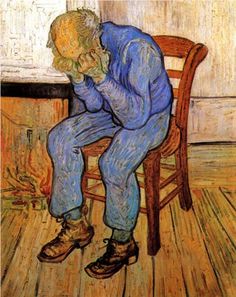Today a marking of history, not an American shinning moment, but a nasty horror incident without a real reason, which like a shitload of other past US narratives, was lied about and downplayed. And though not a major news story on this particular Friday morning, the reflection on the matter is needed — get rid of the bullshit.
Seventy-six years ago just after 8 AM: ‘The United States dropped the world’s first atomic bomb on Hiroshima on Aug. 6, 1945, destroying the city and killing 140,000 people. It dropped a second bomb three days later on Nagasaki, killing another 70,000. Japan surrendered on Aug. 15, ending World War II and Japan’s nearly half-century of aggression in Asia.‘
Not much emotion there, just another WWII factoid.
And a horrible thingie not actually needed. An incident of American shame — Barrack Obama most-likely said it correctly when he visited Hiroshima in May 2016: ‘“Seventy-one years ago, on a bright, cloudless morning, death fell from the sky and the world was changed … A flash of light and a wall of fire destroyed a city and demonstrated that mankind possessed the means to destroy itself.”‘
Harry Truman made an asshole decision.
Historians/researchers Gar Alperovitz and Martin J. Sherwin at the LA Times last year put together the best take on the humanitarian fuck-up of using the bomb on Japan — high points:
The accepted wisdom in the United States for the last 75 years has been that dropping the bombs on Hiroshima on Aug. 6, 1945, and on Nagasaki three days later was the only way to end the World War II without an invasion that would have cost hundreds of thousands of American and perhaps millions of Japanese lives.
Not only did the bombs end the war, the logic goes, they did so in the most humane way possible.However, the overwhelming historical evidence from American and Japanese archives indicates that Japan would have surrendered that August, even if atomic bombs had not been used — and documents prove that President Truman and his closest advisors knew it.
The allied demand for unconditional surrender led the Japanese to fear that the emperor, who many considered a deity, would be tried as a war criminal and executed.
A study by Gen. Douglas MacArthur’s Southwest Pacific Command compared the emperor’s execution to “the crucifixion of Christ to us.”“Unconditional Surrender is the only obstacle to peace,” Foreign Minister Shigenori Togo wired Ambassador Naotake Sato, who was in Moscow on July 12, 1945, trying to enlist the Soviet Union to mediate acceptable surrender terms on Japan’s behalf.
But the Soviet Union’s entry into the war on Aug. 8 changed everything for Japan’s leaders, who privately acknowledged the need to surrender promptly.Allied intelligence had been reporting for months that Soviet entry would force the Japanese to capitulate.
As early as April 11, 1945, the Joint Chiefs of Staff’s Joint Intelligence Staff had predicted: “If at any time the USSR should enter the war, all Japanese will realize that absolute defeat is inevitable.”Truman knew that the Japanese were searching for a way to end the war; he had referred to Togo’s intercepted July 12 cable as the “telegram from the Jap emperor asking for peace.”
…
While a majority of Americans may not be familiar with this history, the National Museum of the U.S. Navy in Washington, D.C., states unambiguously on a plaque with its atomic bomb exhibit: “The vast destruction wreaked by the bombings of Hiroshima and Nagasaki and the loss of 135,000 people made little impact on the Japanese military. However, the Soviet invasion of Manchuria … changed their minds.”
But online the wording has been modified to put the atomic bombings in a more positive light — once again showing how myths can overwhelm historical evidence.Seven of the United States’ eight five-star Army and Navy officers in 1945 agreed with the Navy’s vitriolic assessment.
Generals Dwight Eisenhower, Douglas MacArthur and Henry “Hap” Arnold and Admirals William Leahy, Chester Nimitz, Ernest King, and William Halsey are on record stating that the atomic bombs were either militarily unnecessary, morally reprehensible, or both.No one was more impassioned in his condemnation than Leahy, Truman’s chief of staff.
He wrote in his memoir “that the use of this barbarous weapon at Hiroshima and Nagasaki was of no material assistance in our war against Japan. The Japanese were already defeated and ready to surrender …. In being the first to use it we had adopted an ethical standard common to the barbarians of the Dark Ages.”
Yet another slice of American folklore like slavery and genocide to the whitewash effect, literally.
And in the Harry Truman asshole context, Paul Campos at Lawyers,Gun&Money has done some serious research into Truman’s lying to get wealthy off the taxpayers’ dime — go read it, depicts Harry as a financial douchebag in the T-Rump mold.
Title for this post comes from French director Alain Resnais’ film, “Hiroshima Mon Amour” (1958), a near stream-of-consciousness look at the bombing through a romantic exchange between a French woman and a Japanese man. Odd movie I haven’t seen in years and years — I got hooked on Resnais in the 1970s, especially after I saw “Last Year at Marienbad” (1961) in a film class in college. Loved “Providence” (1977), so much so I saw it all four times it played one month on the old Home Box Office cable channel — the film didn’t get good reviews, but blew my shit away.
Elle, the French woman: ‘“Just as in love, there is this illusion, this illusion that you will never be able to forget, the way I had the illusion, faced with Hiroshima, that I would never forget. Just as in love.”‘
 (Illustration out front: Vincent van Gogh’s ‘Old Man in Sorrow (On the Threshold of Eternity)‘ found here)
(Illustration out front: Vincent van Gogh’s ‘Old Man in Sorrow (On the Threshold of Eternity)‘ found here)